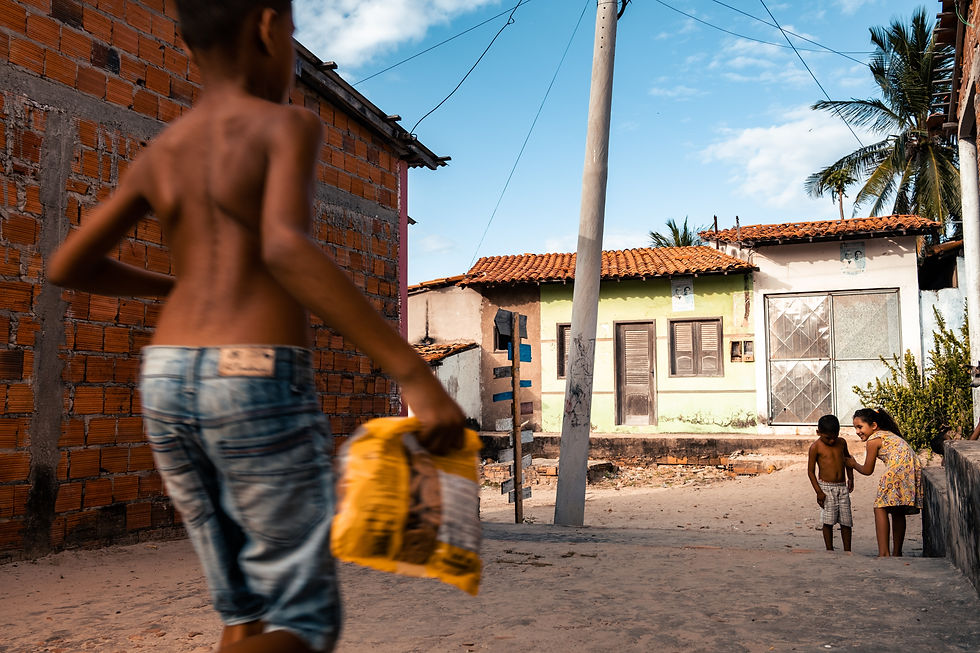Recycled Park: Rotterdam’s floating green innovation
- Editorial Team SDG11

- Jun 28, 2025
- 3 min read

Rotterdam’s Recycled Park stands as a beacon of urban sustainability and innovation in circular design. First unveiled in 2018, this 140 m² floating installation, comprised of 28 hexagonal modules built entirely from intercepted plastic waste, was ahead of its time in both concept and execution. Developed by WHIM Architecture and the Recycled Island Foundation, in partnership with Rotterdam’s municipality and Rijkswaterstaat, the park transforms environmental threat into ecological opportunity.
Although now several years old, the project remains remarkably relevant. As plastic pollution continues to dominate global environmental discussions, Recycled Park serves as an early and influential example of how to integrate waste reuse, biodiversity, and community engagement into one public space.
What it is and why it exists
The original goal behind Recycled Park was to stop plastic waste before it entered the North Sea, while offering functional green space for Rotterdam’s residents. Each floating unit, made of high-density polyethylene (HDPE), was engineered using advanced 3D-BIM design to interlock precisely. The result is a modular, expandable platform that serves both as a pollution trap and a leisure area, embodying the principles of SDG 11 (sustainable cities) and SDG 14 (life below water).
Collection and construction process
Litter traps were tested over an 18-month period, optimised to perform in complex tidal and urban water conditions. These passive systems, still in use today, have intercepted significant quantities of plastic otherwise destined for the ocean.
Monthly volunteer cleanups added a grassroots dimension, increasing community awareness of river pollution and reinforcing the collective responsibility behind urban waste management.
The harvested plastic was then recycled, sorted, melted, and moulded into HDPE blocks. These were designed not only for durability and buoyancy but also to support vegetation and aquatic life.
Ecosystem and community benefits
Each modular block fosters biodiversity both above and below the waterline. Topsoil and native plants provide nesting areas for birds and insects, while the underwater surfaces promote algae and microhabitats for fish and invertebrates. This micro-ecosystem has grown organically since 2018, demonstrating that even small interventions can yield significant ecological return.
In addition to biodiversity, the park provides public amenities such as benches and green walkways, inviting people to interact with their water environment. It continues to serve as a living educational tool, showcasing how urban design can incorporate environmental stewardship.
Scalability and broader impact
The project’s modular structure makes it adaptable and scalable. Since its launch, similar plastic interception systems have been deployed in Belgium and Indonesia, with further parks planned in Vietnam, France, the Philippines, and Brazil.
Recycled Park also forms part of Rotterdam’s wider efforts to reimagine urban living with the water. This includes innovations like floating farms, green roofs, and climate-resilient construction, each a building block in the city’s vision for sustainable, water-centric development in line with SDG 13 (climate action).
The global society and SDG relevance
Although several years have passed since its debut, Recycled Park remains a powerful example of international cooperation and grassroots engagement. Its creation united architects, policymakers, scientists, and volunteers, reflecting the multi-stakeholder collaboration essential to advancing the Sustainable Development Goals.
The project also embodies the spirit of SDG 12 (responsible consumption and production), showing how material often considered worthless can be turned into high-value urban infrastructure. By encouraging citizen science and public involvement, it blurs the lines between waste management and urban creativity.
Despite being launched in 2018, Recycled Park remains at the cutting edge of sustainable design. Its blend of modularity, ecological function, and community use offers cities worldwide a proven blueprint for integrating circular principles into public space. As climate and pollution challenges intensify, early innovations like this remind us that visionary design is both timeless and urgently needed.
Further reading
Image credits and additional information: Solar Impulse Foundation
Recycled Park is not just a floating structure; it is a vision of sustainability, proving that environmental responsibility can be proactive, public, and poetic.



